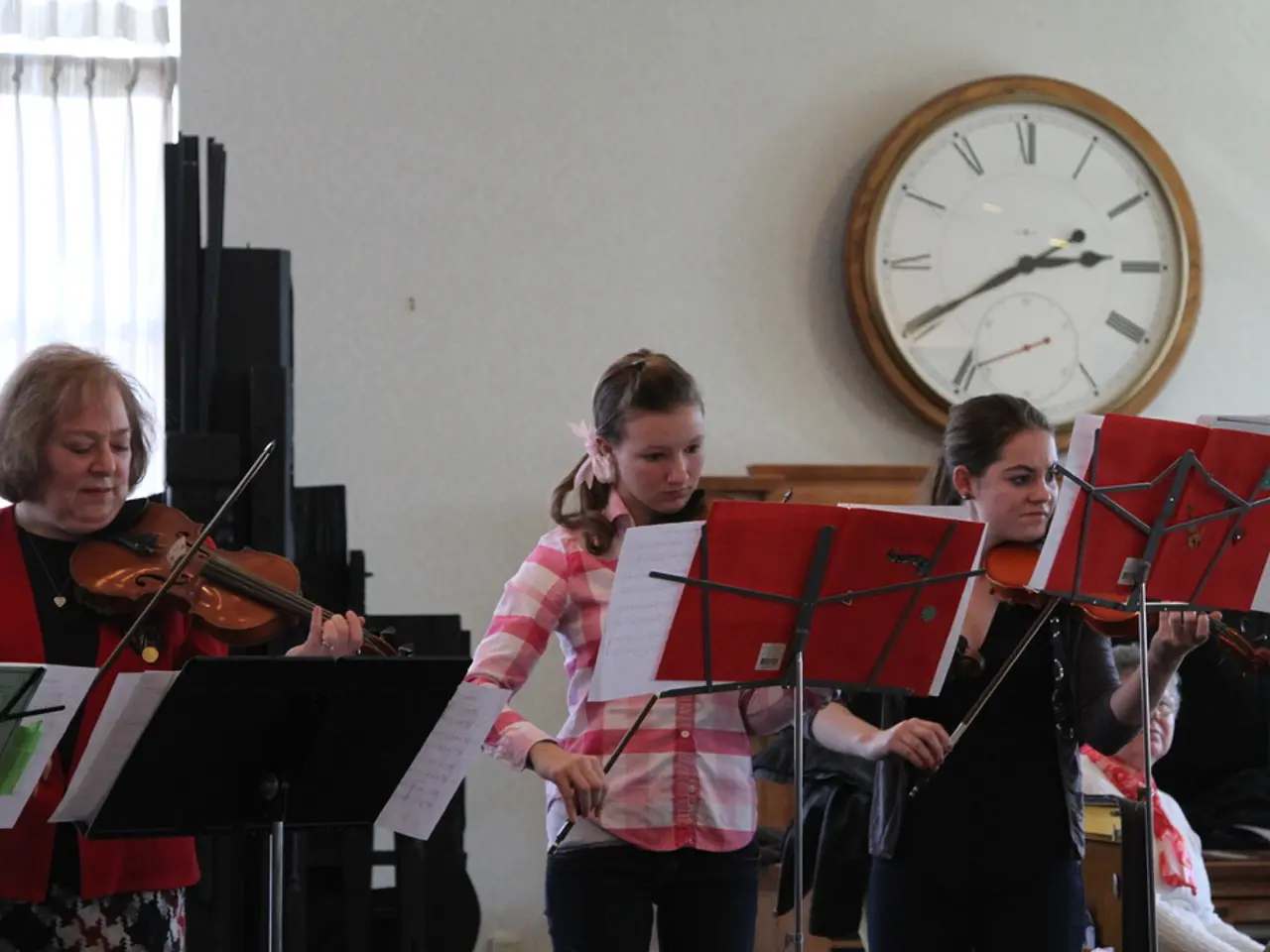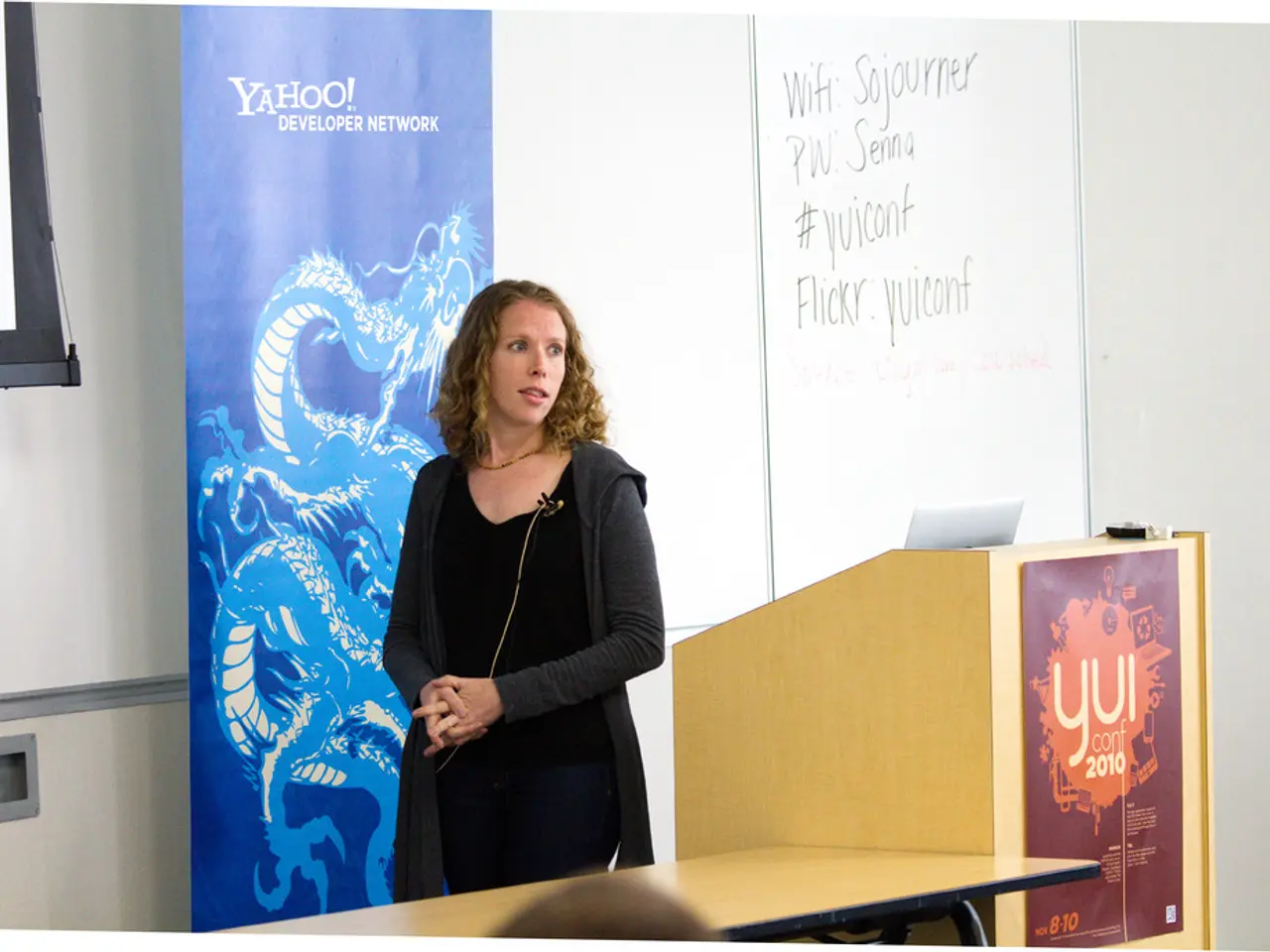Parenting Methods and Obstacles in Nigeria: A Comprehensive Analysis
In the vibrant and diverse nation of Nigeria, parenting styles often reflect a unique blend of tradition and contemporary influences. The predominant approach is one that combines firm discipline and high expectations, rooted in cultural values emphasizing respect, obedience, and discipline.
Nigerian parents, whether at home or abroad, often adopt an authoritative or authoritarian style, setting clear rules and expecting obedience, with discipline enforced firmly. This approach, while deeply ingrained in Nigerian culture, can present challenges such as rebellion, poor communication, and low self-esteem in children.
Balancing tradition and modernity is a common struggle for Nigerian parents, especially those raising children in the diaspora where corporal punishment is discouraged and children’s rights are more emphasized. Cultural clash is another challenge, as parents in diaspora communities strive to maintain Nigerian cultural values like language, respect, and discipline, while adapting to the host country’s parenting norms that promote gentler guidance and emotional awareness.
Educational and career pressure is another factor that can create pressure for children navigating these expectations alongside their personal interests. Strict parenting styles sometimes hinder open communication, potentially leading to misunderstandings or conflict. Maintaining language and cultural identity can also be a challenge, especially among children growing up outside Nigeria, posing a risk of cultural disconnection.
However, it's important to note that not all Nigerian parents adhere to the authoritarian approach. Some parents combine firmness with open dialogue, allowing children to express themselves while maintaining respect and discipline, especially in more modern or diaspora contexts. This democratic or authoritative approach can create a nurturing and supportive environment, setting boundaries and rules while still allowing children to express themselves and make mistakes.
In the face of these challenges, Nigerian parents can mitigate their effects by communicating with their children, fostering a positive relationship, seeking therapy, and working collaboratively to improve their financial situation. Overcoming challenges, seeking support from the community, and paying attention to children's needs is crucial for effective child-rearing in Nigeria.
The influence of technology on parenting in Nigeria can create both challenges and opportunities. Guides such as 'Parenting in the Digital Age' and 'Raising Financially Smart Nigerian Kids' offer valuable insights into navigating tech use, safety, education, and financial literacy for modern families.
Economic hardship in Nigeria often makes it difficult for parents to provide for their children's basic needs, leading to financial stressors that can cause parents to work long hours, leaving less time for parental involvement. Limited access to quality education is a challenge in the Nigerian education system.
Despite these challenges, it's clear that children thrive under parenting that is both loving and supportive, with communication, praise, and affection promoting healthy emotional and intellectual growth. As Nigeria continues to evolve, other parenting styles, such as authoritative and permissive parenting, are becoming more popular, reflecting a growing Westernization of parenting practices.
In conclusion, parenting in Nigeria requires continuous adaptation to life's challenges. By understanding the unique challenges and opportunities presented by Nigerian culture and society, parents can navigate these complexities and provide their children with the best possible upbringing, fostering a new generation of responsible, respectful, and well-rounded individuals.
- In Nigeria, parenting typically involves a blend of tradition and contemporary influences, with an authoritative or authoritarian approach being common, characterized by clear rules and high expectations.
- Nigerian parents overseas may face cultural clashes as they try to maintain traditional values while adapting to the host country's softer parenting norms that focus on gentler guidance and emotional awareness.
- Educational and career pressure, miscommunication, and cultural disconnection can pose challenges for children navigating these expectations alongside their personal interests.
- Some parents balance firmness with open dialogue, allowing children to express themselves while maintaining respect and discipline, a democratic or authoritative approach that fosters a nurturing environment.
- To mitigate the effects of challenges, Nigerian parents can focus on communication, relationship-building, seeking therapy, and collaborative problem-solving to enhance financial stability.
- The influence of technology on parenting offers opportunities, such as insights from guides like 'Parenting in the Digital Age' and 'Raising Financially Smart Nigerian Kids', to navigate tech use, safety, education, and financial literacy in modern families.
- Economic hardship in Nigeria often creates financial stressors, leading to long working hours and less parental involvement, making it difficult to provide for children's basic needs and access quality education.
- Children thrive under parenting that is loving and supportive, with communication, praise, and affection promoting healthy emotional and intellectual growth.
- As Nigeria evolves, other parenting styles like authoritative and permissive parenting are becoming more popular, reflecting a growing Westernization of parenting practices, which requires continuous adaptation to provide the best possible upbringing for children.




